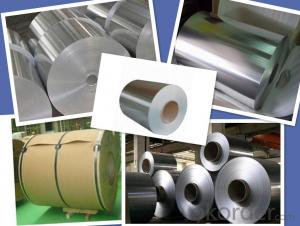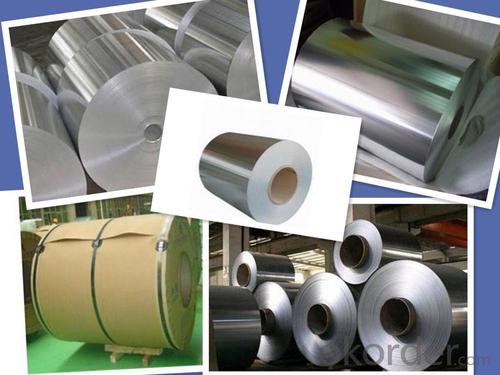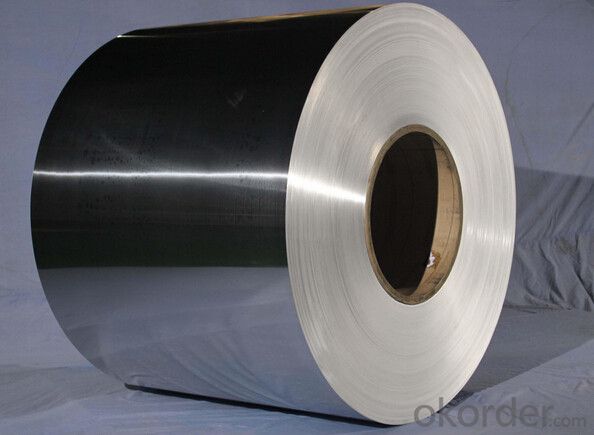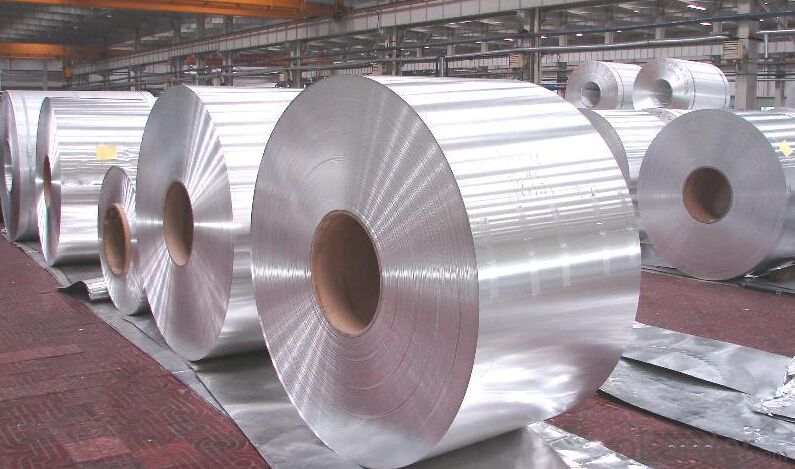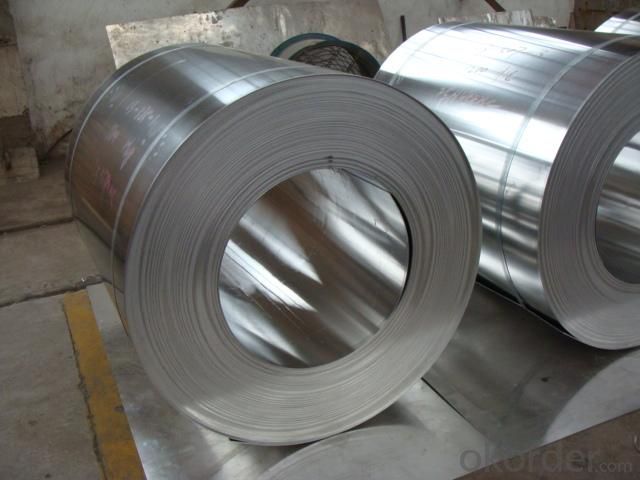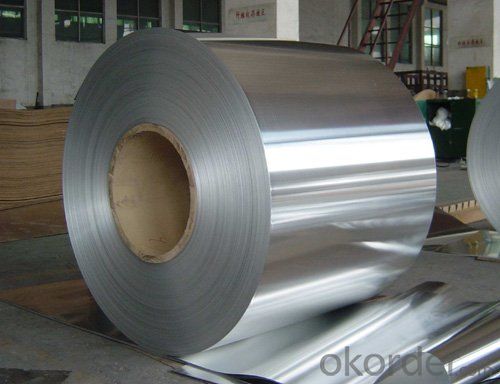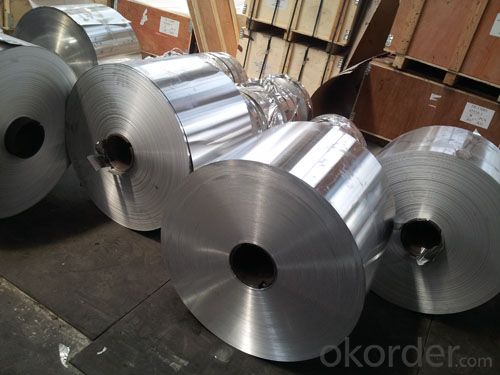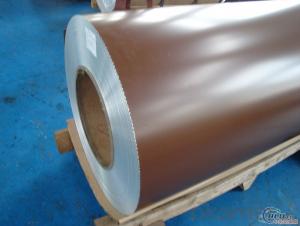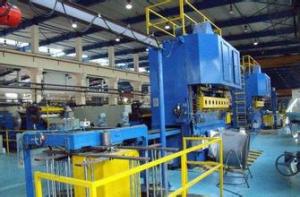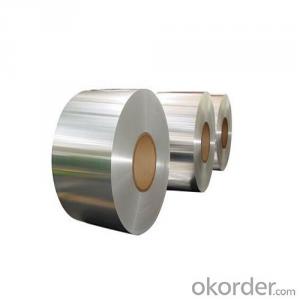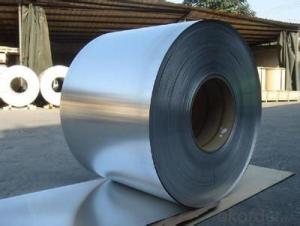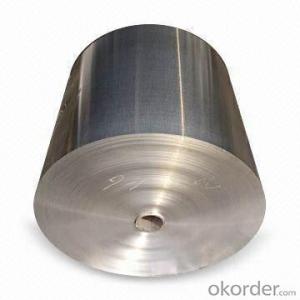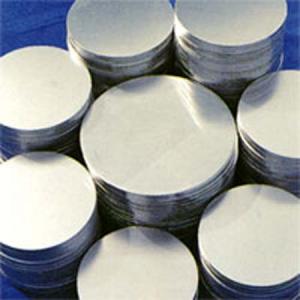Aluminum Coil Racks for Competitive Price from China
- Loading Port:
- Tianjin
- Payment Terms:
- TT OR LC
- Min Order Qty:
- 3 m.t.
- Supply Capability:
- 1000 m.t./month
OKorder Service Pledge
OKorder Financial Service
You Might Also Like
Specification
1. Specification of aLLOY 1050
1) Alloy | 1050, 1060,1100, 3003 3004 3105 3A21 5005 5052 etc |
2) Temper | O/H12/H14/H1/H18/H32/H34/H36/H38//H111/H112/H116/H321/T6/T651/T3/T351 etc |
3) Thickness | 0.1mm to 6mm |
4) Width | 20mm to 3300mm |
5) Coil weight | 100kgs to 6 tons depends on actual requirement |
6) Core material | Aluminum or paper |
7) Coil Inner diameter | 75mm, 150mm, 200mm, 300mm, 405mm, 505mm or as required |
8) Protective film can be added
2. Application of ALLOY 1050
(1).Interior: wall cladding, ceilings, bathrooms, kitchens and balconies, shutters, doors...
(2).Exterior: wall cladding, facades, roofing, canopies, tunnels,column covers , renovations...
(3).Advertisement: display platforms, signboards, fascia, shop fronts...
3. Feature of alloy 1050
*Such coil is specially designed to replace aluminum ingot, due to the high export tax of aluminum ingot, the coil has better price than ingot.
*This type of coil can fit customer's remelting furnace just like ingot, no need to make any change to the production line that was previously used for ingot. The standard coil size and weight is very suitable for the feed gate of furnace.
*This type of coil causes less material wastage than ingot when remelted.
*Our coil is made directly from ore, no need to go though the ingot making process, quality is much better than other suppliers who use ingot scrap to make coil.
Be free from Oil Stain, Dent, Inclusion, Scratches, Stain, Oxide Dicoloration, Breaks, Corrosion, Roll Marks, Dirt Streaks and other defect which will interfere with use
4. Certificate:
SGS and ROHS(if client request, paid by client), MTC(plant provided), Certificate of Origin(FORM A, FORM E, CO), Bureau Veritas and SGS (if client request, paid by client), CIQS certificate
5. Image of alloy 1050
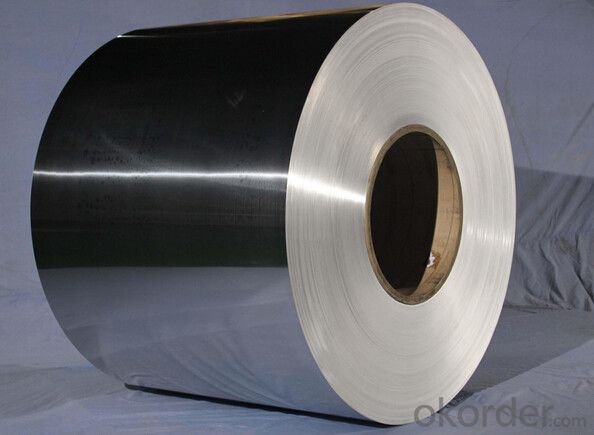
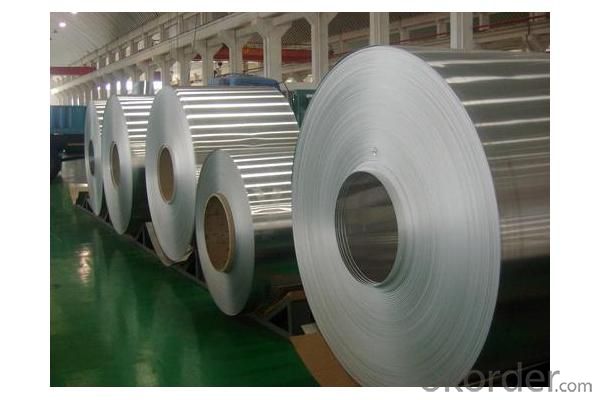
6. Package and shipping of alloy 1050
eye to wall
eye to the wall
with wood pallet (wooded case also available)
7. FAQ
1) What is the delivery time?
Dpends on actual order, around 20 to 35 days
2)What is the QC system:
We have QC staff of 20 persons and advanced equipment, each production is with MTC traced from Aluminum ingot lot.
3) What market do you mainly sell to?
Australia, America, Asia, Middle East, Western Europe, Africa etc
- Q: Are aluminum coils resistant to oil and grease?
- Yes, aluminum coils are generally resistant to oil and grease. Aluminum has a natural resistance to corrosion and is not easily affected by most solvents, including oil and grease. This property makes aluminum coils a suitable choice for various applications where they may come into contact with oils or greases, such as in the automotive and HVAC industries. However, it is important to note that prolonged exposure to certain aggressive chemicals or high concentrations of oil or grease may still cause some damage or degradation to the aluminum coils over time. Therefore, it is recommended to properly clean and maintain the coils to ensure their optimal performance and longevity.
- Q: 0.6mm insulation aluminum coil price insulation aluminum coil where to buy the most assured?
- If the surface of the aluminum color, it is directly on the Internet search color coated aluminum roll can be.
- Q: How do aluminum coils contribute to the corrosion resistance of products?
- Aluminum coils contribute to the corrosion resistance of products in several ways. Firstly, aluminum itself is a highly corrosion-resistant material due to its natural oxide layer that forms on its surface when exposed to oxygen. This oxide layer acts as a protective barrier, preventing further oxidation and corrosion. When aluminum is formed into coils, it offers additional advantages for corrosion resistance. The coil form allows for a more uniform distribution of the material, ensuring that the protective oxide layer covers the entire surface area of the product. This helps to prevent localized corrosion and ensures a more consistent level of corrosion resistance across the entire product. Moreover, aluminum coils can also be coated with various protective coatings or treatments to enhance their corrosion resistance further. These coatings can provide an additional layer of protection against environmental factors such as moisture, chemicals, and UV radiation, which can accelerate corrosion. Additionally, aluminum coils are often used in combination with other materials in products, such as galvanized steel or stainless steel. These combinations, known as bimetallic or trimetallic products, take advantage of the different properties of each material to enhance corrosion resistance. For example, the aluminum layer can act as a sacrificial anode, corroding preferentially to protect the underlying material from corrosion. In summary, aluminum coils contribute to the corrosion resistance of products due to the inherent corrosion resistance of aluminum, the uniform distribution of the material in coil form, the possibility of applying protective coatings, and the use of bimetallic or trimetallic combinations. These factors help to ensure that products made with aluminum coils have a longer lifespan and are better protected against corrosion in various environments.
- Q: What are the potential applications of stucco-embossed aluminum coils?
- Stucco-embossed aluminum coils offer a multitude of potential uses due to their distinct properties and attractive appearance. Here are some possible applications for stucco-embossed aluminum coils: 1. Construction: Stucco-embossed aluminum coils are commonly employed in the construction sector for cladding and roofing purposes. The textured pattern strengthens and enhances the durability of the aluminum, making it suitable for external applications. It can be utilized on both commercial and residential buildings to provide a visually pleasing and long-lasting finish. 2. Insulation: Stucco-embossed aluminum coils can also serve as insulation material. The textured surface increases the material's surface area, thereby improving its thermal conductivity. This makes it an excellent choice for applications where heat transfer needs to be regulated, such as HVAC systems or refrigeration units. 3. Appliances: The manufacturing of various appliances often incorporates stucco-embossed aluminum coils. The textured surface not only adds visual interest but also provides a robust and easy-to-clean finish. It can be used in the production of kitchen appliances like refrigerators, dishwashers, and ovens, as well as other household appliances like air conditioners or water heaters. 4. Transportation: Stucco-embossed aluminum coils also find applications in the transportation industry. The textured surface enhances traction, making it suitable for vehicle flooring and decking in buses, trains, and ships. It is also used for decorative purposes in the interior and exterior parts of automobiles, imparting a stylish and modern appearance. 5. Packaging: Stucco-embossed aluminum coils can be utilized in the packaging industry. The textured surface adds strength and rigidity to the material, making it ideal for manufacturing durable containers, trays, and packaging materials. It is suitable for food and beverage packaging, pharmaceutical packaging, and various other applications where a sturdy and visually appealing packaging solution is required. In conclusion, the uses for stucco-embossed aluminum coils are diverse and adaptable. From construction to insulation, appliances to transportation, and packaging to various other industries, stucco-embossed aluminum's unique properties and attractive appearance make it a popular choice for a wide range of applications.
- Q: My budgies took at bath in an aluminum pie tin today. At first they bit it just because it was their first time. Should I be worried that they might get poisoned?
- Nah, when I was a baby I took baths in aluminum pie tins all the time.
- Q: When aluminum metal is heated with an element from group VIA of the periodic table, an ionic compound forms. When the experiment is performed with an unknown croup VIA element, the product is 18.56% Al by mass. What is the formula of the compound and what is its name?
- Let's say you have l00 grams of this compound, so inside the compound would be l8.56 grams of Aluminum and the remaining. 81.44 grams of the second element. Elements in group 6A have 6 electrons in their outer shell and an oxidation # of -2 and the formula for the compound would be Al2X3. a 2mole Al to 3 mole X ratio. The compound would have the atom ratio of Al2X3 derived from the valences of +3 and -2. So the two aluminum atoms in the compound would be providing a total mass of l8.56 grams and the three atoms of X would be providing the remaining mass of 81.44 g so we have the ratio. l8.56 g Al/ 2 Al moles = 81.44 grams element X/ 3 moles X The mass ratio between these two elements is 8l.44 over l8.56 or 4.38 to l The atomic wt. total for 2 aluminum atoms is 54 so the atomic wtl total for three atoms of element X should be 4.38 times 54 which is 236.9 Now if we divide 236.9 by three atoms of X in the compound we get an atomic wt. of 78.9 which corresponds to Selenium So the compound is Al2Se3. This was a challenging problem, congratulations to your chem teacher.!!!
- Q: Can aluminum coils be used in marine applications?
- Yes, aluminum coils can be used in marine applications. Aluminum is a corrosion-resistant metal that provides excellent durability and strength, making it suitable for various marine environments. It is commonly used in boat building, marine equipment, and other marine applications due to its lightweight nature and resistance to saltwater corrosion.
- Q: Are there any limitations or drawbacks of using aluminum coils?
- There exist certain limitations and drawbacks regarding the utilization of aluminum coils. To begin with, one limitation is the higher cost of aluminum coils compared to alternative coil materials, such as copper. This disparity in cost can result in reduced cost-effectiveness, especially when large quantities of coils are necessary. Another drawback is that aluminum coils exhibit lower thermal conductivity in comparison to copper coils. Consequently, the transfer of heat may not be as efficient, ultimately impacting the overall system performance. In instances where heat transfer is of utmost importance, copper coils may be the preferred option. Furthermore, aluminum is more susceptible to corrosion in contrast to other metals. Although aluminum coils are typically coated or treated to enhance corrosion resistance, they can still be vulnerable to damage in harsh environments or if the coating is compromised. This can lead to diminished efficiency and a shorter lifespan for the coils. Moreover, aluminum coils may not be suitable for certain applications that require high strength or durability. Due to its relatively soft nature, aluminum may not effectively withstand heavy loads or extreme conditions as other materials would. Lastly, repairing or replacing aluminum coils can be more challenging compared to other coil types. The unique properties of aluminum necessitate the utilization of specialized tools and techniques, consequently adding to the overall complexity and cost of maintenance or repairs. In conclusion, while aluminum coils possess advantages, it is crucial to consider these limitations and drawbacks when selecting the appropriate coil material for a specific application.
- Q: I am concerned about the environment so I collect empty aluminum cans off the street when I walk my dog. Right now I have 3 large garbage bags full of crushed aluminum can. The problem is... some of the cans have dirt on and in them. Some of thoroughly flattened ones may even have small pebbles embedded in them. Will these be accepted at the recycling facility? I'm guessing it doesn't matter because when they melt them any organic materials will burn away and any dirt particles or small pebbles will be separated from the molten aluminum. What do you think?
- No problem with dirt and dust.
- Q: Which aluminum roll is good?
- Complete product specifications, quality assurance, brand strength has very good cutting characteristics of Gaoyang welding, the main products are pure aluminum, aluminum alloy, aluminum pattern, Japan Sumitomo mirror aluminum, aluminum and other materials imported from South Korea, widely used in home appliance industry, stamping, sheet metal production, decoration, curtain wall, automobile industry, mold processing. Ship manufacturing, pipe insulation, lighting, advertising signs, etc..
Send your message to us
Aluminum Coil Racks for Competitive Price from China
- Loading Port:
- Tianjin
- Payment Terms:
- TT OR LC
- Min Order Qty:
- 3 m.t.
- Supply Capability:
- 1000 m.t./month
OKorder Service Pledge
OKorder Financial Service
Similar products
Hot products
Hot Searches
Related keywords
